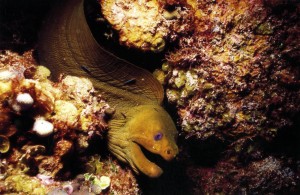Ah, an extra early morning for me. My internal clock that usually goes off at 5:00 a.m. was at 4:00 this morning – an inconvenient time. The reason for that is unless I can go back to sleep immediately (as does happen), then I might as well get up. If I toss and turn for fifteen minutes, then the odds are it will be for another several minutes and now I am approaching 4:30 which rounds up to 5:00. Don’t worry if you don’t follow that logic because my husband finds it to be merely another of those pesky things that one works out in a marriage that lasts for any appreciable length of time. He vainly suggests that I simply try to go back to sleep and I get up knowing the futility of his suggestion. The coffee wasn’t yet made since 5:30 is what is set up for early risers. There was hot water though and I enjoy hot tea, too. I will have my sunrise though, the reverse of last night when now the dark sky transitions through gray, pink and gold tinged clouds become white against a backdrop of blue.
Oh yes, speaking of night brings night diving to mind. There is a passage in Deadly Doubloons where I describe night diving to some extent. As with any ecosystem, there are night creatures that make limited appearances during the day. Fish tuck up into the reef at night to sleep, hopefully protected from the predators searching for a meal. Eels, lobster, octopus emerge from ledges and crevices seeking prey and sharks often feed at night, performing their primary food-chain function of gobbling up fish that have been slowed due to age or other infirmity. Contrary to popular fiction of ripping into humans as a source of food, sharks help keep the reef ecosystem in balance through this natural order. Squid often also prefer night and other activities with corals and so forth take place. It is this nocturnal side of marine life that lures divers into the water, and it is quite dark. Visibility is limited to what you can see within the radius of a dive light and that means one hand is devoted to holding the light. Well, there are some other methods, but in general, it is holding the light in one hand. I find it to be a cumbersome process, plus the topside and water temperature drops at night, frequently to a degree that I is uncomfortable for me. While those factors contribute to my lack of enthusiasm for night diving, the real reason is because night diving interferes with drinking and leisurely dining. The approved mantra among dive operators is, “Your first drink of the day is your last dive of the day.” Having a cold beer at the end of an afternoon dive is a distinct pleasure as is having wine or beer with dinner and then, voila!, you aren’t supposed to dive. In my years of diving, I think I’ve done less than a dozen night dives. The night dive off the Kona Coast to see the manta rays is a definite exception, but once was enough from my perspective.
There is, however, the option of “dawn diving” where you slip into the water approximately 30 minutes before scheduled sunrise. I’ve only done that a couple of times and you get to see the remaining night creatures that are making their way to rocky overhangs as the reef around you relinquishes darkness to light. That, I enjoy, but it doesn’t appeal to most people.


